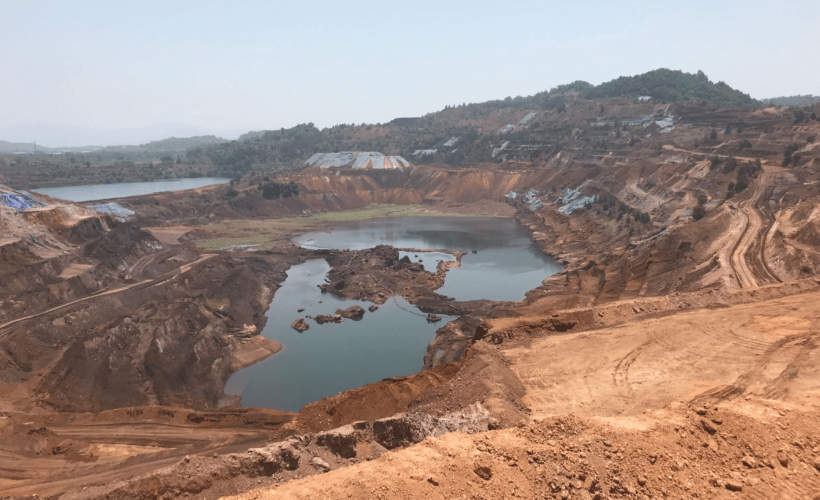
The State Government pushes for overdue farmer compensation and local hiring mandates as a new era of mining begins
Goa, a land celebrated for its sun-kissed beaches, vibrant culture, and lush greenery, holds a deeper, more conflicted identity beneath its picturesque surface. For decades, the state has been a battleground between economic ambition and environmental preservation, with its iron ore reserves at the heart of the conflict. The mining industry, once a cornerstone of Goa’s economy, has left an indelible mark on its landscape and its people. This isn’t just about the mineral wealth extracted from the earth; it’s about the social, economic, and ecological ripples that continue to affect countless lives. It’s a narrative of displacement, environmental degradation, and the slow, often painful, quest for justice for those whose livelihoods were uprooted. As Goa grapples with the revival of its mining sector, the past serves as a crucial, cautionary tale. The question is not just how to resume mining, but how to do so in a way that rectifies the mistakes of the past and ensures a sustainable future for all Goans. This is the complex story of a state trying to balance progress with preservation, all while the earth’s wounds remain unhealed.
Goa Government pushes mining firms to expedite farmer compensation
In a recent session of the state legislative assembly, Chief Minister Dr Pramod Sawant announced that the government will instruct mining companies to accelerate compensation payments for approximately 720 farmers in mining-affected areas, including Lamgao and Bicholim Taluka. These payments are contingent on the resolution of their cases by the Deputy Collector.
The Chief Minister highlighted that District Mineral Foundation (DMF) funds are designated exclusively for mining-affected regions. He also noted that Rs 500 crore from the Permanent Mineral Fund is awaiting approval from the Supreme Court, a matter the government is actively pursuing.
Goa Forward Party MLA Vijai Sardesai brought attention to the plight of 600 farmers in Lamgao awaiting compensation from Vedanta Mining Company, while others have been waiting for over eight years for dues from Chowgule Mining Company. Sardesai proposed utilizing DMF funds to pay the farmers initially and subsequently recovering the amounts from the respective companies. Additionally, it was revealed in the assembly that the North Goa and South Goa DMFs lack data on mining-related employment generated over the past two years.
New Mining Policy to prioritize local employment
A private member’s resolution advocating for the preferential hiring of local truck operators and heavy equipment owners by mining companies was withdrawn following an assurance from Chief Minister Dr Pramod Sawant. He stated that the state’s mining policy would be modified to address these concerns and that future lease agreements would include conditions mandating the employment of locals.
The resolution, moved by MLA Carlos Alvares Ferreira, aimed to require all mining leaseholders to prioritize the engagement of trucks, earth movers, and other heavy equipment owned and operated by Goans. This initiative is designed to bolster local employment and stimulate economic growth within mining regions.
Supporting the resolution, MLA Nilesh Cabral voiced concerns over mining companies outsourcing their operations. MLA Viresh Borkar cited practices where new leaseholders are engaging high-capacity trucks from Karnataka for transport.
Opposition Leader Yuri Alemao urged that mining companies be required to re-employ previously laid-off workers and that local hiring be made a mandatory condition.
In a related suggestion, MLA Vijai Sardesai proposed a “right of refusal policy,” citing a similar practice in Karnataka where a mining firm gives preference to local residents for mining operations.
Hope for Goa’s Mining Communities
The issues brought to the forefront, from the long-overdue compensation for farmers to the lack of local employment data and the outsourcing of transport operations; underscore the systemic challenges that have plagued Goa’s mining industry for years. The recent discussions and assurances from the Chief Minister are a sign that the government is finally acknowledging these deep-seated grievances. However, the path to resolution remains long and fraught with challenges. While the promise of including conditions for hiring locals and the proposed use of DMF funds offer a glimmer of hope, they are merely the first steps. The true measure of success will be in the swift and equitable implementation of these policies. For the affected communities, particularly the farmers who have waited for years, these are not abstract promises but a matter of survival. The future of mining in Goa hinges on more than just policy changes; it requires a genuine commitment to social justice and environmental stewardship. The revival of the industry must be built on a foundation of fairness and transparency, ensuring that the benefits are shared with those who have borne the heaviest burden, and that Goa’s natural beauty is not sacrificed for economic gain





